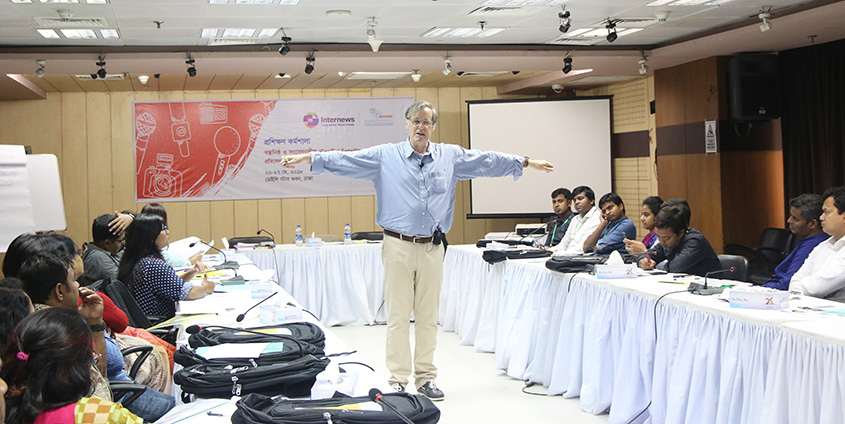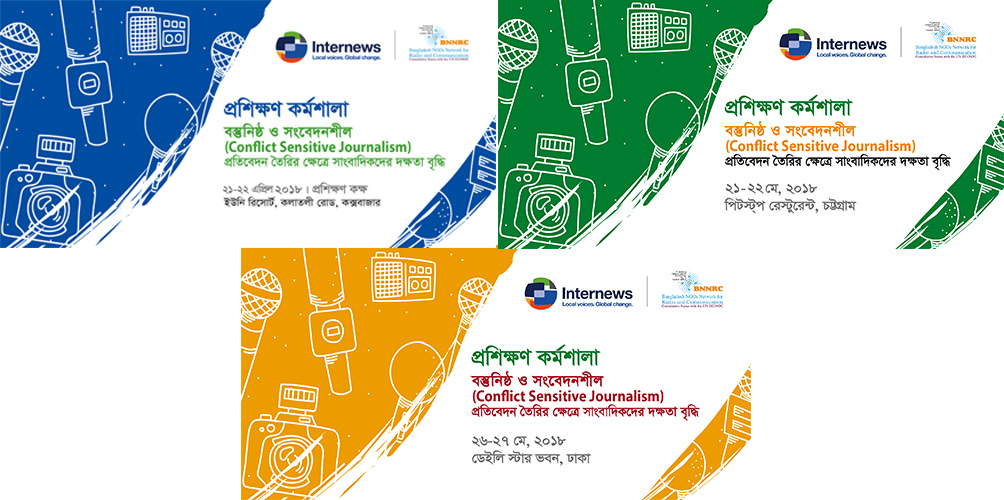Conflict Sensitive Journalism stresses four key concepts — truth-seeking, accuracy, balance, and responsible writing — and recognizes access to information, freedom of expression, and the safety and security of its practitioners as requisites.
 Journalists across the world face deep dilemmas when it comes to reporting on conflicts that are occurring in and sometimes devastating the communities in which they live and work. Every day they respond to the challenges of being part of communities caught up in conflict while at the same time being part of a profession that expects fair and even-handed coverage of these conflicts.
Journalists across the world face deep dilemmas when it comes to reporting on conflicts that are occurring in and sometimes devastating the communities in which they live and work. Every day they respond to the challenges of being part of communities caught up in conflict while at the same time being part of a profession that expects fair and even-handed coverage of these conflicts.
In Bangladesh, journalists face similar dilemmas while covering news if not in the same magnitude. Political violence and non-political violence are major concerns for newsmen who cover events involving physical confrontation. There are occasions when reporters are seemingly left with no choice but to report one side of the story because of the difficulties in accessing information, resulting in a compromise with accuracy, balance and truth of the incident.
The Conflict Sensitive Journalism workshop encouraged journalists to recognize that they can make a constructive difference in conflict, whether it is armed conflict, political or socioeconomic conflict, and that they can do so without compromising their roles as providers of fair, accurate and responsible reporting.
The interactive training helped journalists to recognize how they may unwittingly exacerbate conflict and encourage them to consider the impact of certain practices.
It helped journalists to see how, by enhancing their understanding of conflict and the theories that explain it, they can provide more informed, accurate and comprehensive coverage. It also provided some simple but useful tips and points that can assist journalists in reporting effectively on conflict.
The workshop takes place at a time when Bangladeshi news organizations are covering complex issues such as the Rohingya influx. Therefore, to increase understanding of conflict sensitivity, Bangladesh NGOs Network for Radio & Communication (BNNRC), with support from Internews, organized a two-day workshop on conflict sensitive journalism for journalists in Cox’s Bazar, Chattogram and Dhaka on 21-22 April, 21-22 May and 26-27 May 2018 respectively
The workshop was facilitated by Mr. Nicholas Nugent, Consultant in Broadcasting and Journalism, UK and Mr. Michael Schmidt, Freelance Investigative Journalist, South Africa.
